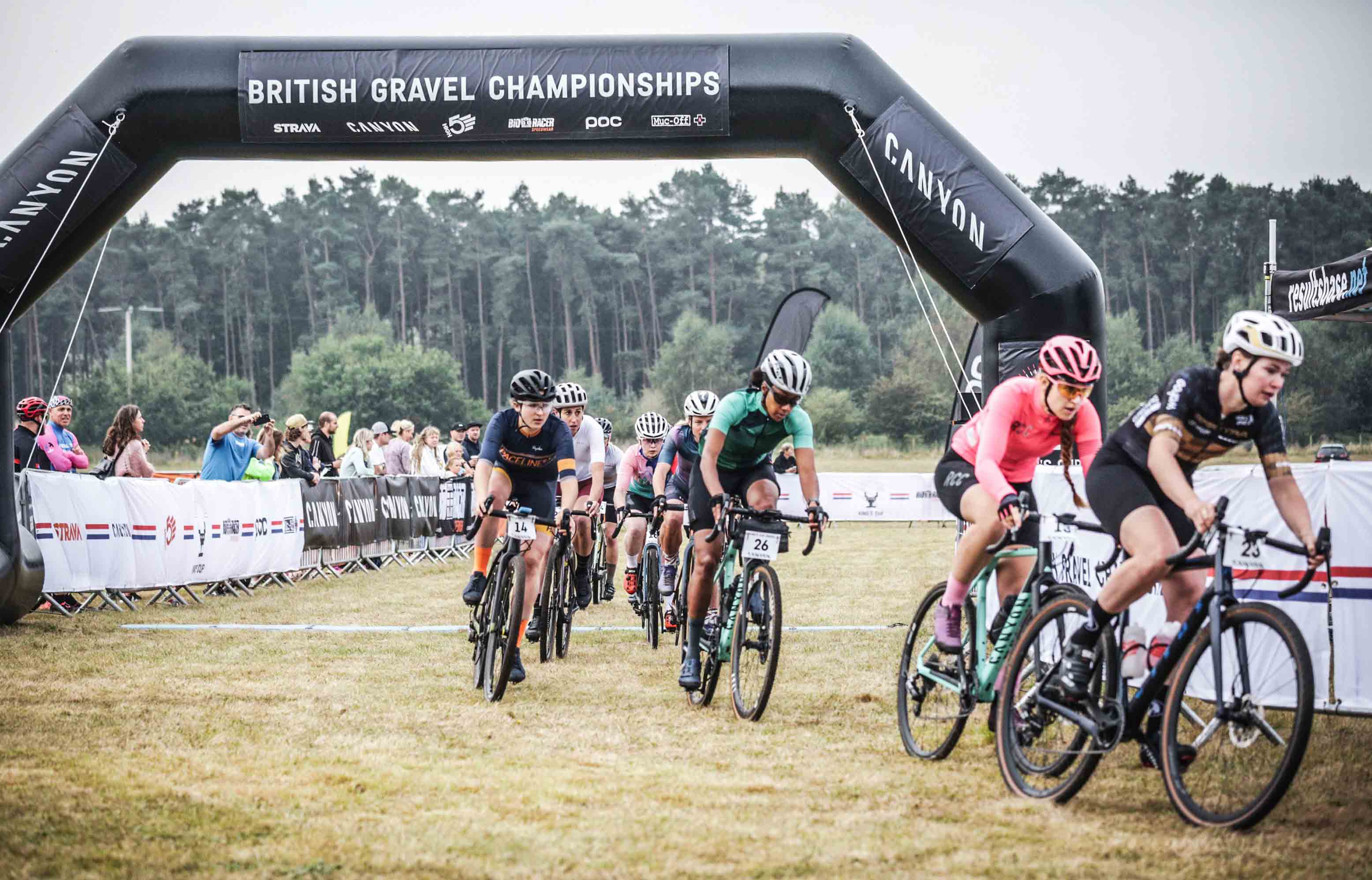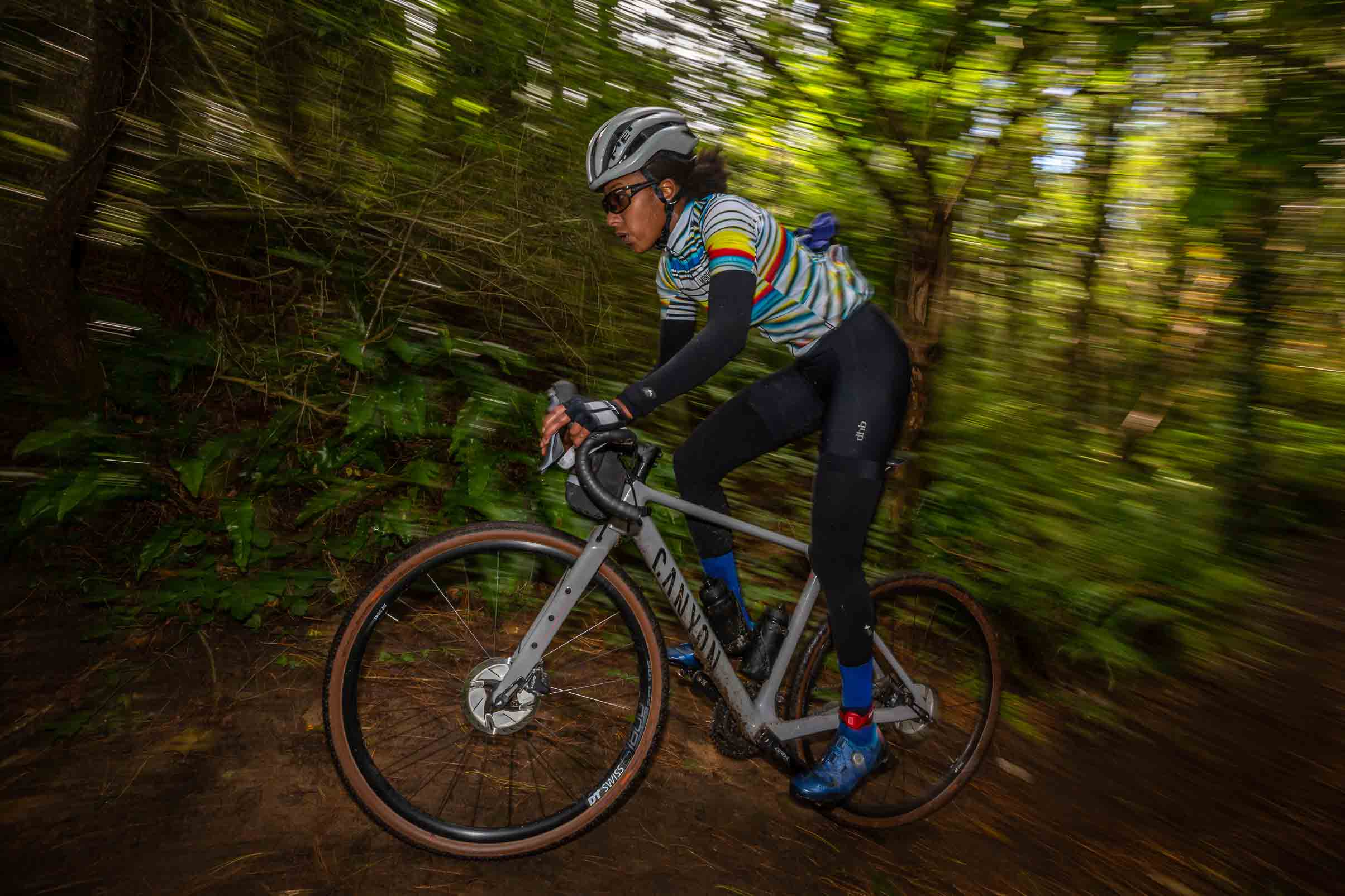Image courtesy of
@BattleonthebeachWhen most people think of gravel racing, they think about bikepacking and epic distances. Hundreds of kilometres ridden over many days (and nights), where your ability to ride fast over varying terrain must be balanced by your resourcefulness and ability to function on limited sleep. The stories that come out of these races are things of legend, and the riders themselves gain a level of notoriety, having proven their mettle in the difficult conditions that inevitably arise.
Image courtesy of @
kingscupgravelThough these ultra-endurance gravel races hold a lot of appeal for me, especially the opportunity to realise my potential and push myself beyond my known limits, they don’t mesh that well with having a full-time non-cycling day job. And it’s not just the vacation time that I would need to use up to compete in these longer events, it’s also the training time that precedes it. Some riders manage to juggle these things seamlessly, but I have a tendency to end up feeling a little burned out, and the simple fact of the matter is shorter events don’t require such a substantial time commitment.
Image courtesy of @
grinduroIf we look at an event like Grinduro - raced over one day with a route totalling roughly 90km, there are four timed sectors of a few kilometres each. The rest of the day is taken at a social pace, riding alongside friends and having fun, not forgetting the festival vibe that awaits us at each feed stop and back at the event arena. It’s super easy to just set off from home on a Friday evening, race Grinduro on Saturday and then be back home on Sunday, ready to start another working week. Training for an event like Grinduro generally comes down to how seriously you intend to race it, which brings us to another aspect of shorter gravel races - there is always a cohort who don’t intend to race it at all and ride it more as a sportive.
Image courtesy of
@BattleonthebeachThese riders simply complete the timed segments at the same pace they would do on a normal day ride, whilst those at the pointy end of the race push themselves into the red hoping to get onto the podium and nab one of those unique Grinduro trophies. I consider myself to be somewhere amongst the latter, though I haven’t made it onto the podium yet! And if I do decide partway through the event that I’d rather just ride fast and have fun rather than race, Grinduro is a space that allows for that without leaving me feeling like I’m off the back of a racing bunch and visibly losing time. This is a stress factor that I have felt in past multi-day events where every rider has a GPS tracker - finding myself looking at the map, seeing where the other dots are and feeling that I have to push on because people are dotwatching and will notice that I’m falling behind. I can't say I like that pressure, and an event like Grinduro removes it entirely by using each rider’s tracking chip to just record the timed segments, so in theory, you could set off dead last, be at the back all day, and still win!

Image courtesy of @
kingscupgravelOn the other end of the one-day gravel racing spectrum, there are events like the King’s Cup and Battle on the Beach, where it’s 100% race from start to finish. I haven’t spoken much about the King's Cup Gravel Championships since competing, and that’s primarily because it was 70km of the most full-on racing I’ve ever experienced, and I was so incredibly underprepared. I remember standing on the start line, looking left and right, seeing several pro and ex-pro riders and thinking, ‘this is definitely going to hurt’. It was almost three hours (much less for the winner!) of relentless off-road riding, no opportunities for a breather, and almost no time to eat any of the snacks I had stashed in the pockets of my cargo bibshorts. I did learn some important things from that event though - firstly that I prefer a much more technical course, and secondly that I need to properly train and taper for that length and style of race, not just stick to my usual off-road activities (it seems so obvious in hindsight).

Image courtesy of
@BattleonthebeachBattle on the Beach, on the other hand, was more my cup of tea. It was 45km of sand, singletrack and forest roads, and I absolutely loved it! It wasn’t a pure test of power, you also needed fairly decent bike handling ability. The variety of bikes present (gravel, MTB, CX and even a few fat bikes) was a clear representation of the varying conditions around the course, each rider having chosen what they felt would fare best. The constantly changing terrain, the need to occasionally get off and run, or to ride a sandy descent more carefully or else risk crashing, meant that the racing was punctuated by small moments of recovery. This was definitely an event more suited to my skills and available training time, and one I would certainly race again and recommend to anyone who enjoys an occasional bit of #underbiking.
Image courtesy of
@BattleonthebeachWhat I’ll be taking away from these shorter events from 2021 is that although I will likely put aside a larger block of vacation time for some ultra-endurance gravel racing in 2022, continuing to do these shorter one-day races is a good way to temporarily escape the daily grind and have gravel racing fit with the rest of my life whilst not having to make it all bikes all the time.
Although, all bikes all the time would be the dream, wouldn’t it?
Image courtesy of @
grinduroDALILA LECKY
Dalila lives in London and started riding and racing bikes back in 2012. Initially she was into road and criterium racing, but then got hooked on track riding too. Now she spends her winters getting a fix of mud and endorphins during the cyclocross season and the rest of year juggling a full-time job with gravel racing and bikepacking trips. She wants to try her first ultra-endurance gravel race in 2022, but will also continue to compete in shorter one-day races which she says “is a good way to temporarily escape the daily grind.”